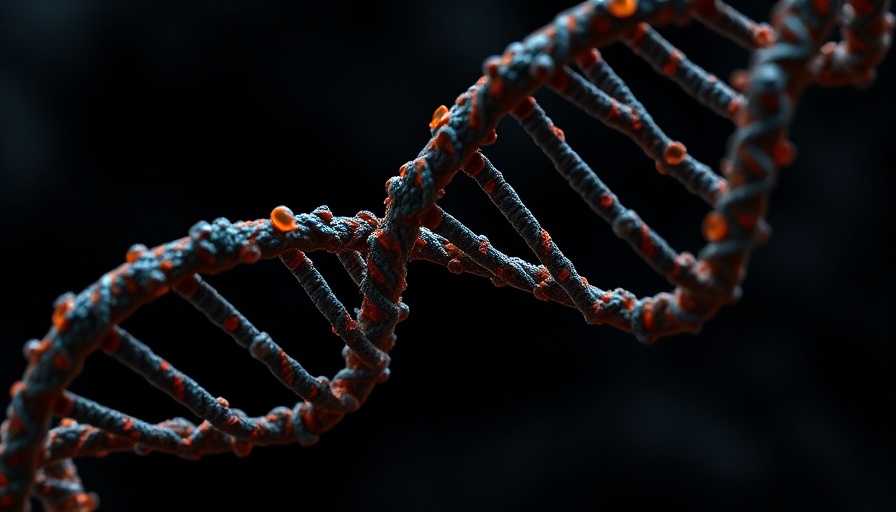
Unpacking the Ethical Implications of Artificial Human DNA
As the landscape of medical science evolves, technologies such as synthetic DNA (synDNA) are increasingly entering the spotlight, prompting essential discussions surrounding their ethical ramifications. A recent study conducted by researchers from the University of Manchester and partners highlights the need for an ethical framework as we begin to understand the impact this technology may have on society.
What is Synthetic DNA and Why Does it Matter?
Synthetic DNA refers to artificially created DNA sequences assembled with precision. The potential medical breakthroughs that stem from this technology could range from innovative gene therapies to the understanding and prevention of hereditary diseases. Indeed, scientists have already made strides in synthesizing bacterial genomes and segments of human chromosomes, paving the way towards the ambitious goal of constructing entire human genomes in laboratories.
While many health practitioners view this as an evolution in genetic research, a slew of ethical questions arise: Who truly owns synthetic human DNA? What rights do individuals have regarding the replication of their genetic information? The implications of these questions extend far beyond the realms of genetics and into the domains of privacy and identity.
The Intersection of Science and Ethics
The ethical analysis authored by Professor Iain Brassington and his colleagues emphasizes a balanced approach to stimulating dialogue rather than establishing definitive conclusions. "Our goal is not to take a definitive stance but to spark crucial discussions. SynDNA could profoundly change how we see ourselves and our biological makeup," Brassington explains.
Developed synthetic embryos—sometimes called embryo models—highlight similar ethical dilemmas. These developments, which involve using stem cells rather than traditional fertilization methods, can help researchers gain crucial insights into embryonic development yet pose their own set of questions regarding legal and ethical guidelines surrounding human reproduction. As seen in the creation of synthetic human embryos, rapid advancement in synthetic biology has outpaced the necessary ethical discussions, leaving an urgent need for governance in these innovative fields.
Considerations for Health Practitioners
For concierge health practitioners, the implications of synDNA research offer both exciting possibilities and significant challenges. Widespread adoption of artificial DNA technologies can lead to improved clinical practices, including personalized medicine based on genetic profiling. However, this also raises pressing questions about genetic privacy and the ownership of one’s biological data. As practitioners, it becomes critical to engage in these discourses not only to better understand how they may impact patient care but also to advocate for ethical guidelines that prioritize patient rights and informed consent.
Collaboration Among Experts is Essential
The conclusion drawn from the University of Manchester’s study stresses the importance of collaboration among scientists, policymakers, and ethicists to establish a rigorous framework governing the responsible use of synDNA. Such cooperation will be crucial for navigating the rapidly changing landscape of medical ethics that synthetic biology introduces.
Looking Ahead: The Future of Synthetic DNA
As we approach a future where synthetic DNA could reshape identities, legal frameworks, and understandings of human reproduction, health practitioners are called to stay informed about these advancements. The ethical considerations surrounding synthetic DNA represent not just academic discussions, but real-world implications for how people will perceive healthcare, privacy, and personal identity.
The challenges ahead are substantial, but the opportunity to enhance human health through responsible innovation is equally significant. Engaging with these dialogues early will empower healthcare practitioners as advocates for their patients in a rapidly advancing technological world. So, let's embrace the opportunity to participate in shaping the ethical frameworks that will govern this exciting new frontier.
By staying informed and actively participating in discussions, healthcare practitioners can protect patient interests while contributing to the responsible development of transformative technologies. This ensures that the promise of synthetic DNA can be realized without compromising ethical standards or patient autonomy.
 Add Row
Add Row  Add
Add 






Write A Comment